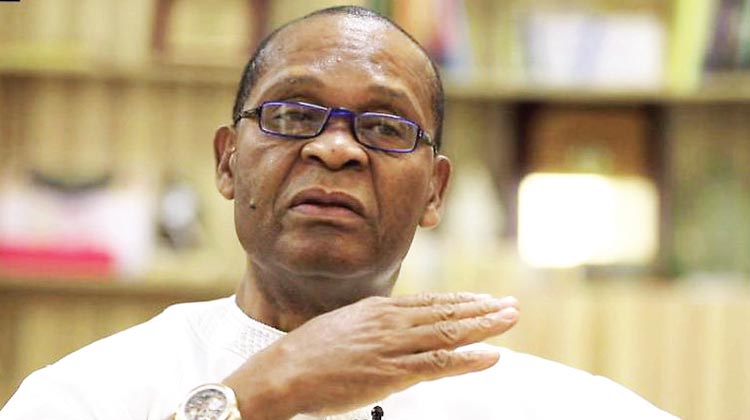Joe Igbokwe, a prominent figure within the All Progressives Congress (APC) in Lagos State, has voiced his apprehension regarding the apparent marginalization of the South-East region in Nigeria’s national affairs. He cautions that the continued neglect of the region could lead to dire consequences for the nation’s stability and unity. Igbokwe’s statement, published on his Facebook account, comes amidst a growing chorus of criticism surrounding the distribution of appointments under President Bola Tinubu’s administration. The crux of the issue revolves around the perception that certain regions are being favored over others, raising concerns about equity and fairness in the allocation of national resources and positions of power.
Igbokwe’s warning underscores the historical context of the South-East’s relationship with the Nigerian federation. The region’s experience during the Nigerian Civil War, also known as the Biafran War (1967-1970), left deep-seated wounds and a sense of marginalization that continues to resonate today. The war, fought over issues of self-determination and perceived injustices, resulted in immense human suffering and destruction. Although the conflict officially ended with the reintegration of Biafra into Nigeria, the underlying grievances remained largely unaddressed. The perceived marginalization in political representation, resource allocation, and infrastructure development has fueled a sense of resentment and disenfranchisement among many in the South-East.
The current debate over political appointments under the Tinubu administration has reignited these historical grievances. Critics argue that the distribution of key positions reflects a pattern of exclusion, further alienating the South-East and potentially destabilizing the fragile peace. Igbokwe’s statement serves as a reminder that the unhealed wounds of the past can easily be reopened if the concerns of the South-East continue to be ignored. He emphasizes the need for a more inclusive approach to governance that recognizes the historical context of the region’s grievances and actively works towards addressing them.
The government’s response to these criticisms has been to defend its appointment process, asserting that selections are based on merit and competence. However, this argument fails to acknowledge the systemic inequalities that may disadvantage individuals from certain regions. Even if appointments are made based on individual merit, the lack of representation from a particular region can still be perceived as marginalization. This highlights the need for a more nuanced approach to appointment decisions, one that considers not only individual qualifications but also the broader goal of ensuring equitable representation from all regions of the country. A truly meritocratic system must also address the underlying factors that limit opportunities for certain groups, such as disparities in access to education, healthcare, and economic resources.
Igbokwe’s warning should be taken seriously by the current administration. The South-East region, with its significant human and economic potential, plays a vital role in Nigeria’s overall progress. Ignoring the concerns of this region risks creating a breeding ground for discontent and further exacerbating existing fault lines within the nation. A genuinely inclusive approach to governance, one that recognizes the historical context of the South-East’s grievances and actively works towards addressing them, is essential for fostering national unity and stability.
Addressing the concerns of the South-East requires a multi-faceted approach. Beyond equitable representation in political appointments, the government must prioritize investments in infrastructure development, education, and job creation within the region. This includes addressing the historical imbalances in resource allocation and ensuring that the South-East receives its fair share of national resources. Furthermore, promoting open dialogue and fostering reconciliation initiatives can help to heal the wounds of the past and build trust between the region and the federal government. Only through a concerted effort to address both the historical and contemporary grievances of the South-East can Nigeria hope to achieve lasting peace and unity.














